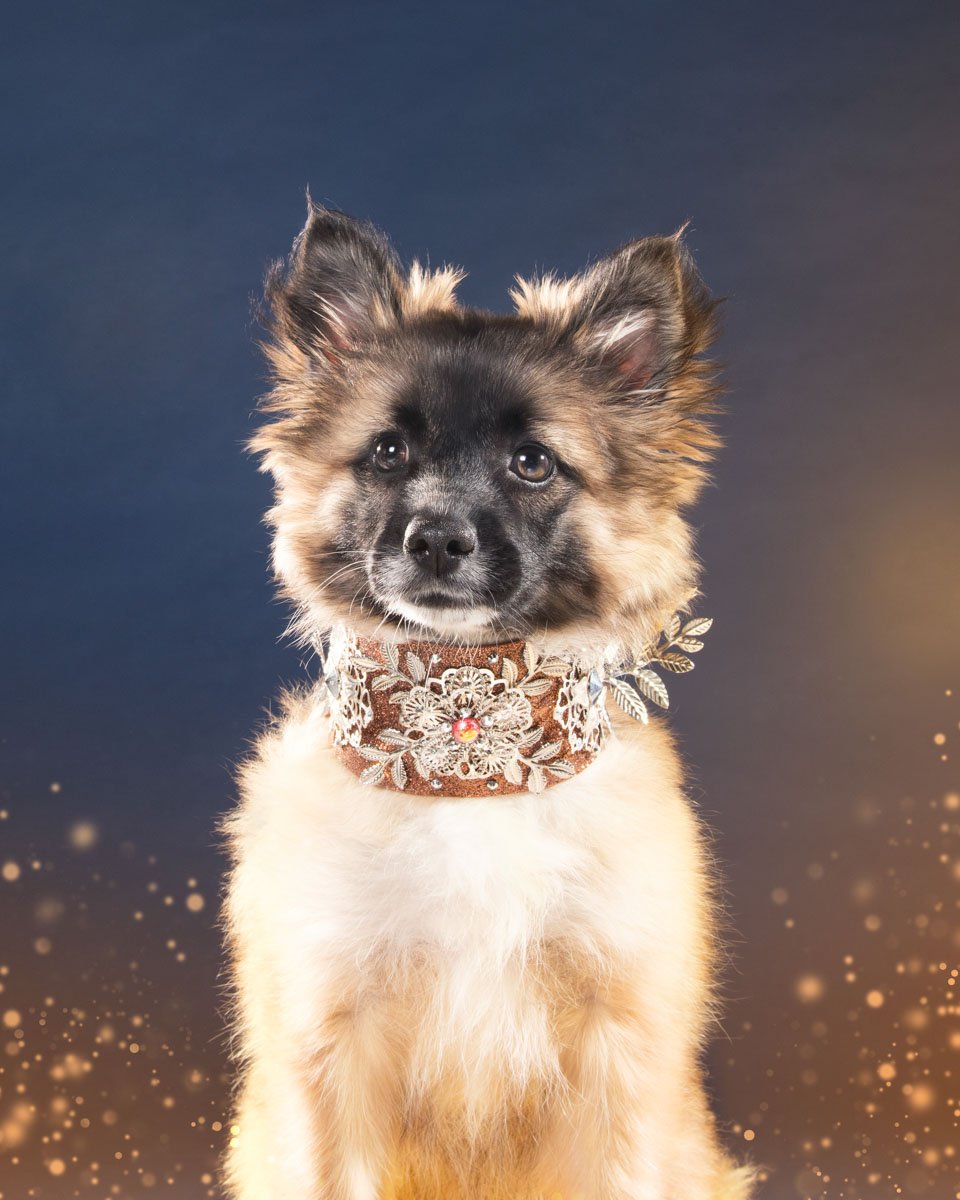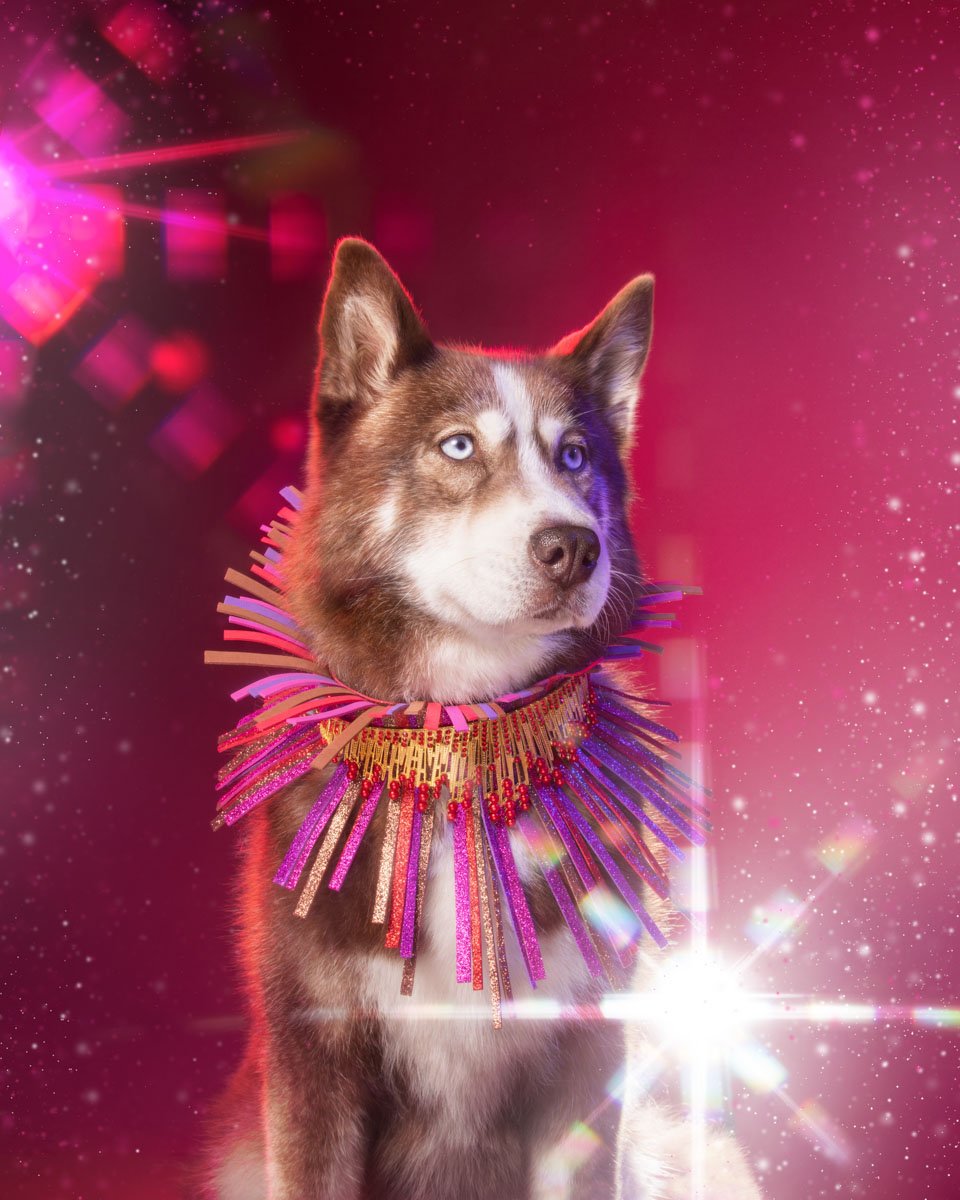SURVIVORS OF THE DOG MEAT TRADE
The dogs featured in this series were rescued from the South Korean dog meat trade by Humane Society International. These dogs were being raised on dog meat farms to be consumed by humans.
Since their rescue, they were all adopted and now live in loving families.
Despite opinion polls consistently showing that the majority of South Koreans don't and won't eat dog meat, and that most support a legislative ban (1), the South Korean meat industry is still very active, pushed by a powerful lobby.
According to Humane Society International / Korea, South Korea is the only known country to intensively farm dogs for human consumption: an estimated 1 million dogs are bred every year on those farms. They are kept and slaughtered in cruel, unsanitary conditions. Dogs and cats fall in a grey area of the law. They are not included in livestock regulations, which leaves them exposed to even more neglect and dangerous practices.
“Within South Korea, the dog meat trade occupies a liminal legal space — neither explicitly condoned, nor technically prohibited. As a result of existing in this legal gray area, all facets of the dog meat trade within South Korea — from dog farms, to transport, to slaughter, to consumption — are poorly regulated and often obfuscated from review. In the South Korean context, the dog meat trade itself not only terminally impacts millions of canine lives each year, but resonates in a larger national context: raising environmental concerns, and standing as a proxy for cultural and political change.”(2)
As pet ownership is on the rise in South Korea, society is grappling with this issue in new, more emotional ways. To combat this, the dog meat industry claims that dogs raised for their meat on farms, namely Tosas and Jindo mixes, are soulless, incapable of being dog companions. Therefore, their slaughtering is acceptable. This myth persists today, hindering the work of local SK animal advocates.
HSI / Korea works hand in hand with willing farmers who reach out because they want out of the trade. Those farmers come to HSI because the dog meat industry offers them no future, and instead burdens them with financial, societal and familial challenges due to the controversial and increasingly unpopular nature of the trade. HSI / Korea offers them support as they transition toward animal-free, sustainable businesses. The farms are destroyed and all the dogs rescued. The farmers often become active ambassadors for HSI / Korea’s efforts, helping other farmers commit to the transition. This Models for Change program adopts a philosophy of dignity for all, from the dogs to the humans.
In 2019, I visited a dog meat farm with HSI, as they prepared the dogs for the closure/rescue (Farm 15). Some of the dogs I met on the farm later became models for this series of portraits.
HSI / Korea invited to me create a series of portraits of dogs they’d rescued from dog meat farms in South Korea, and who all live in adoptive families (check this page for before/after and adoption updates). They wanted me to create portraits to change public perception by showing the soulfulness of these dogs, influence policymakers and build national and international momentum in support of HSI’s campaign to end the dog meat trade.
I chose to adorn each dog with a handmade collar. Akin a wedding band, the collar is a powerful symbol of commitment, love, safety, and forever companionship.
The series has several purposes: to create an emotional connection between the dogs and the public, giving a face and a story to these dogs who are so often invisible to the public; to show that Tosas and Jindo mixes are equally capable of being pet companions and are as soulful as any other dogs; and to show the public that all breeds can be found on dog meat farms, something the dog meat lobby refutes. In 2019, the dog meat farm counted several purebred dogs (golden retriever, husky, chow-chow, Boston terriers…). As the series attests, all breeds can be found on dog meat farms and markets, and all dogs are at risk of being caught in the horrifying industry.
In May/June2023, the series was exhibited in one of Seoul’s major subway stations and through subway ads. Titled “Beyond Prejudice” the exhibit invited people to look at these dogs who are often forgotten. Next to the portraits, farm pictures showed the reality of life on dog meat farms, and the appalling conditions in which the dogs are kept.
During the few days of the exhibit, thousands of visitors engaged with the exhibit in meaningful ways, from school teachers bringing their class, to an elderly woman sharing her story: she used to serve dog meat at her restaurant until she had a change of heart...
We gave many interviews, including with The Korea Times and other big cultural, political and art outlets, resulting in 30 media pieces. A wonderful TV interview with English-speaking channel Arirang TV will air in 180 countries (I spoke about my passion for dog stories, and what dogs can teach us).
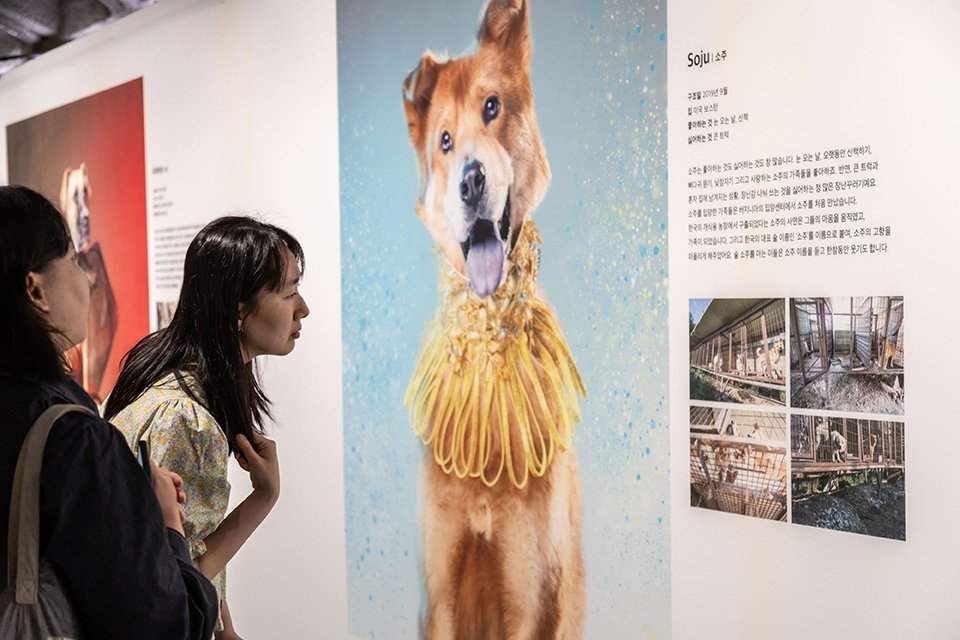
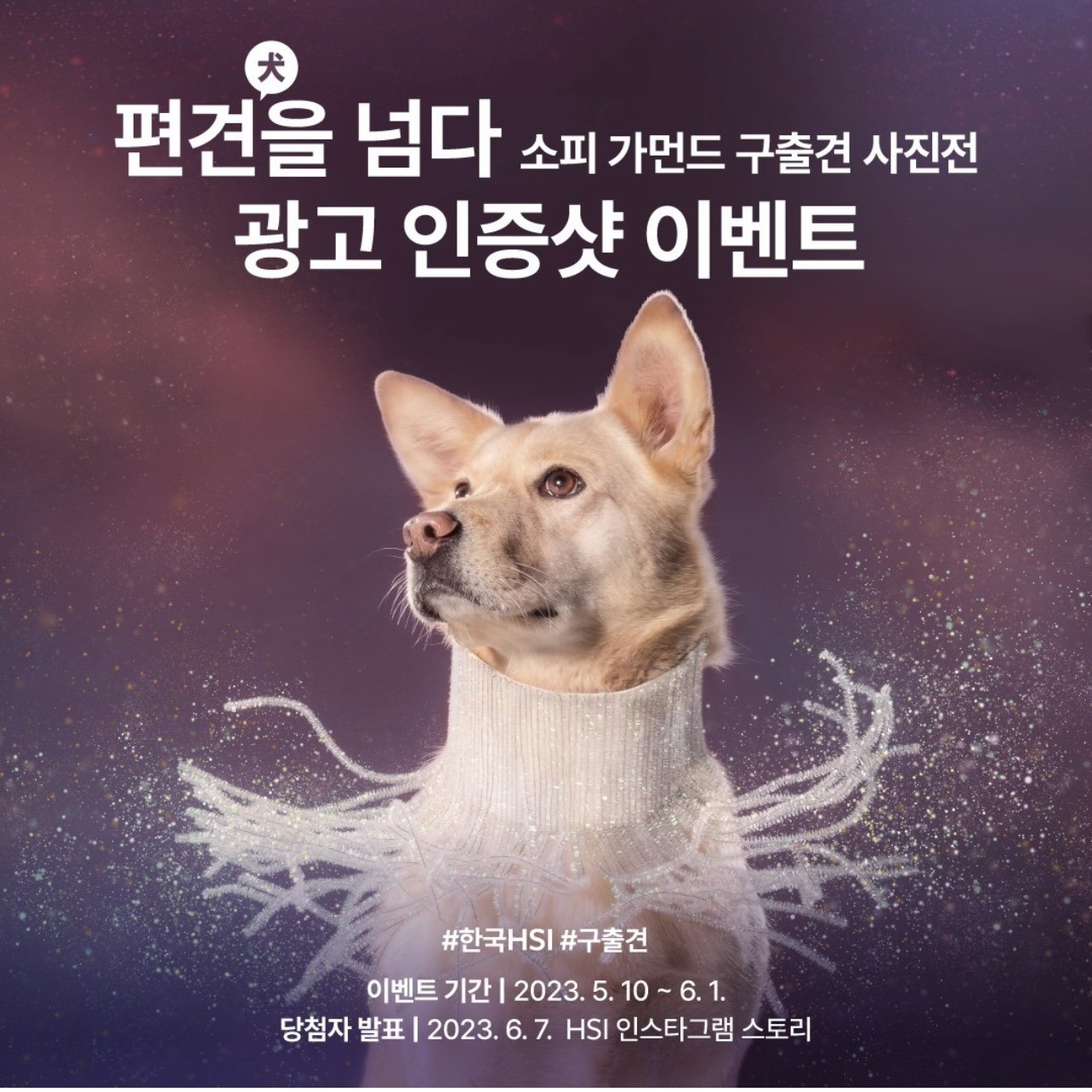
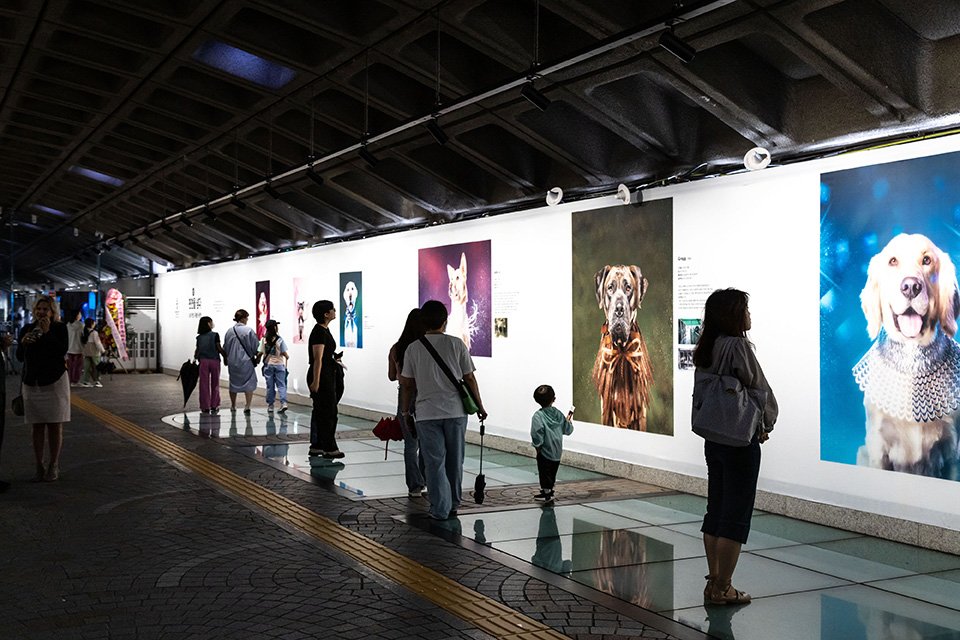
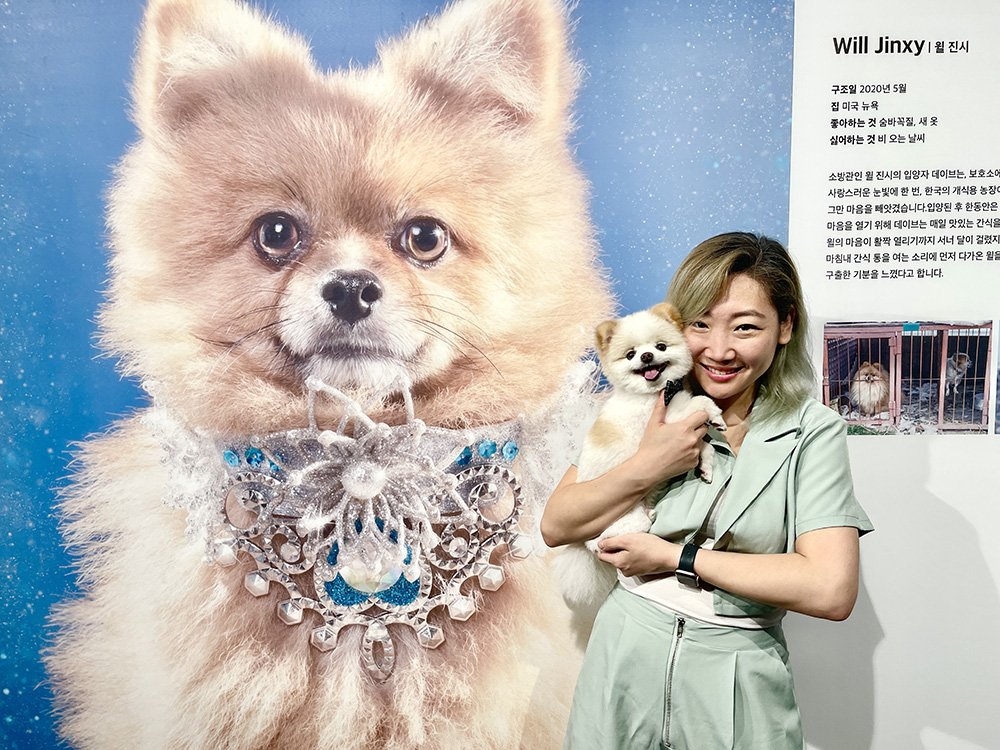

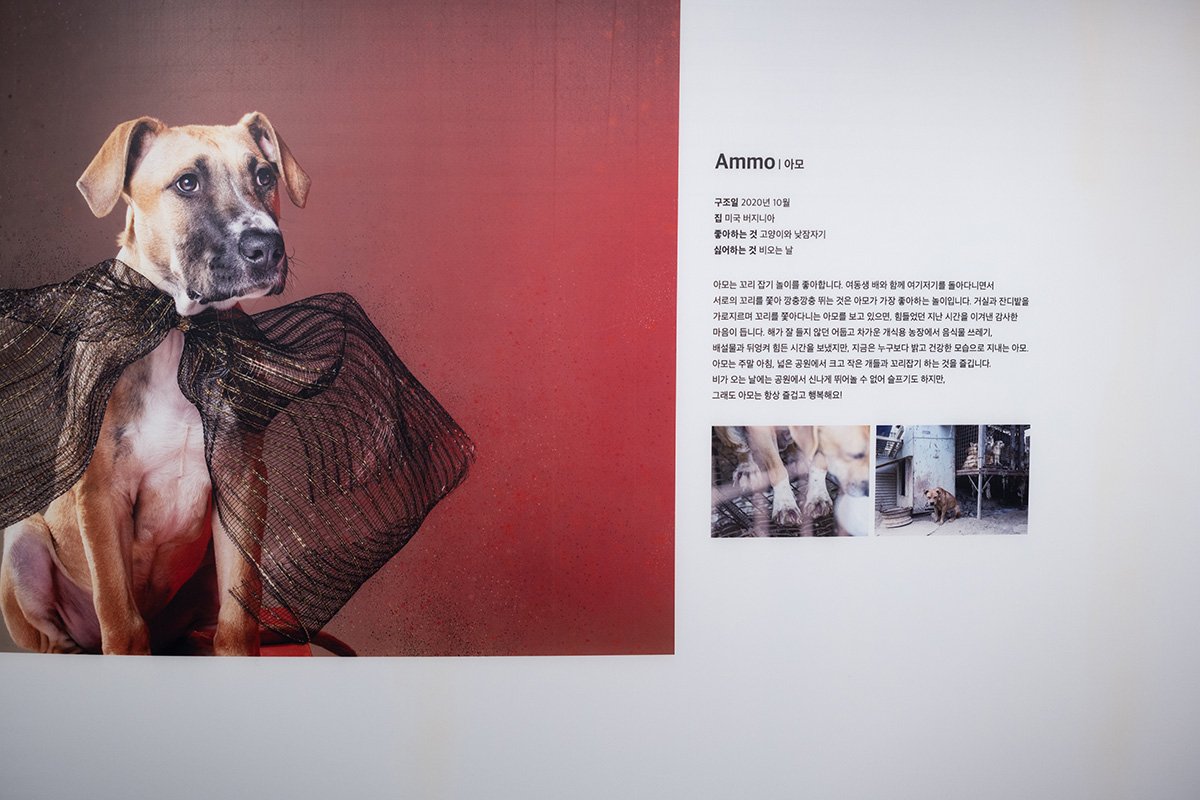
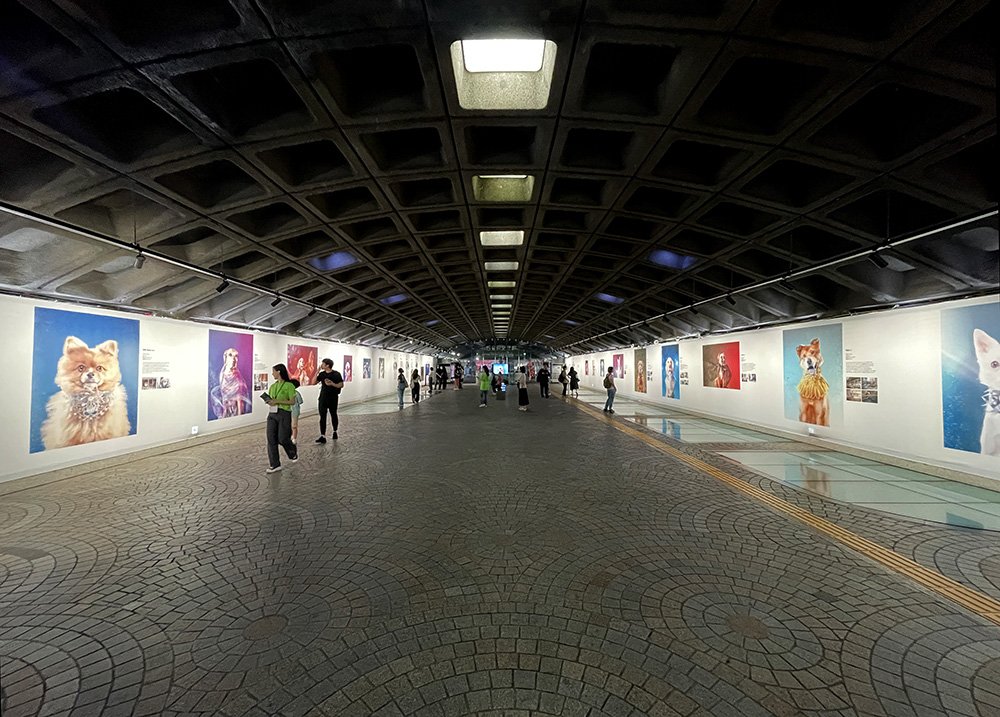
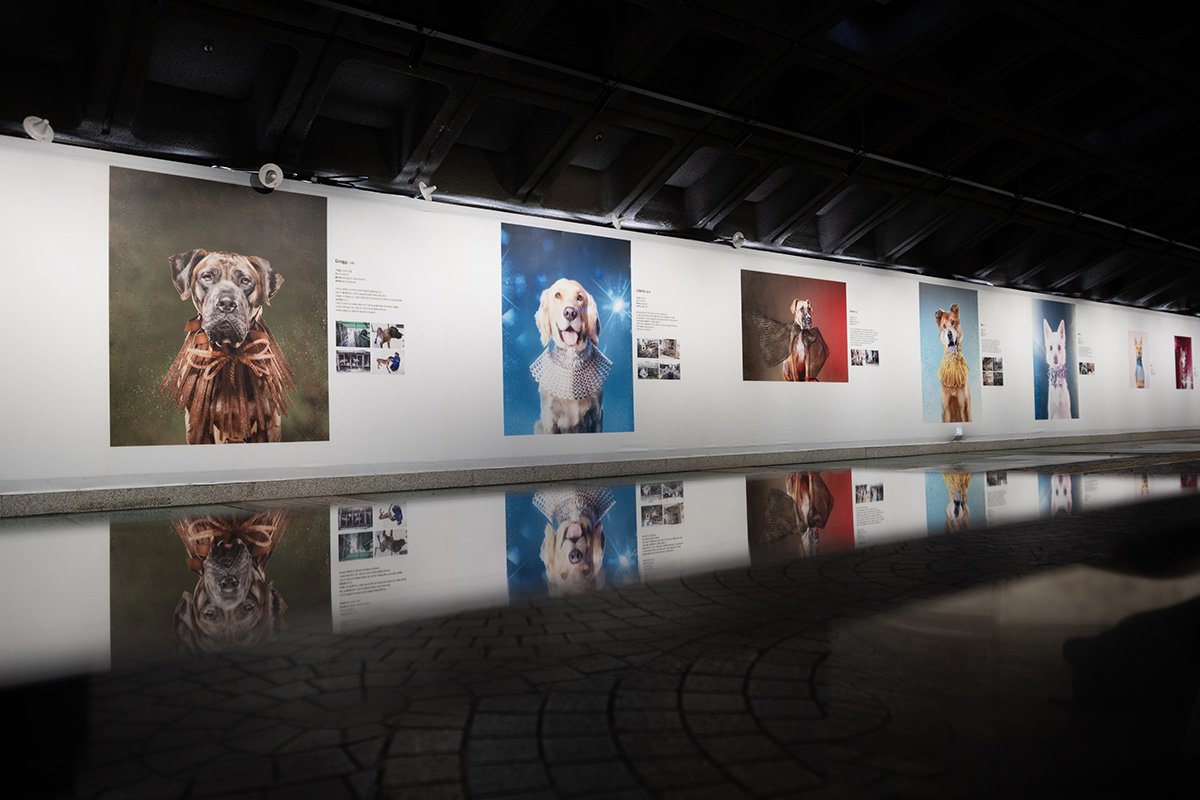
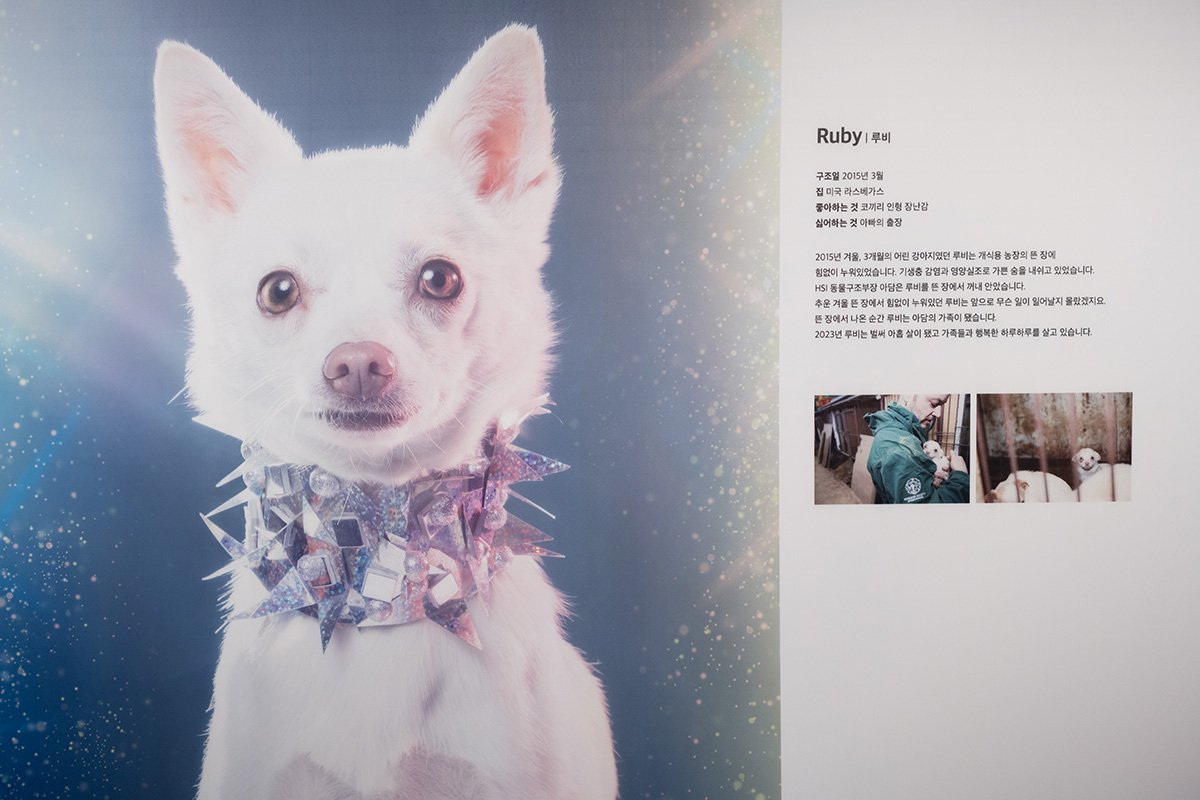
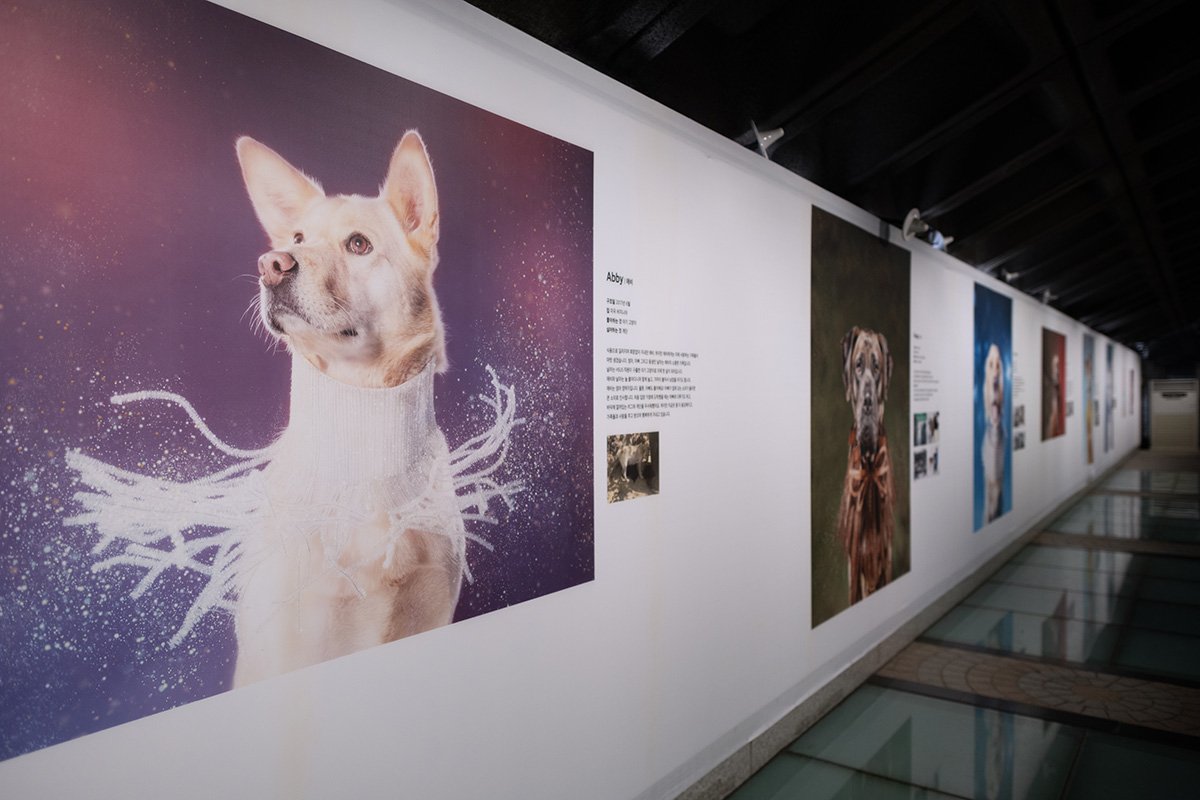
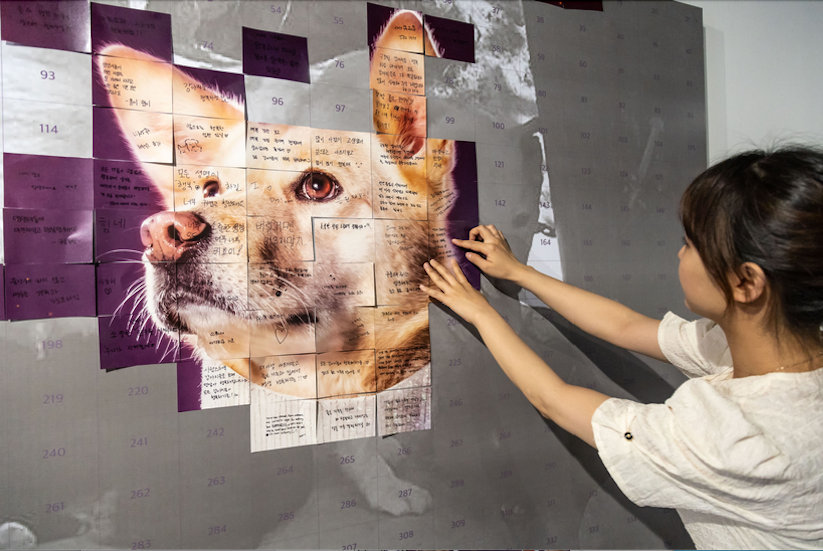
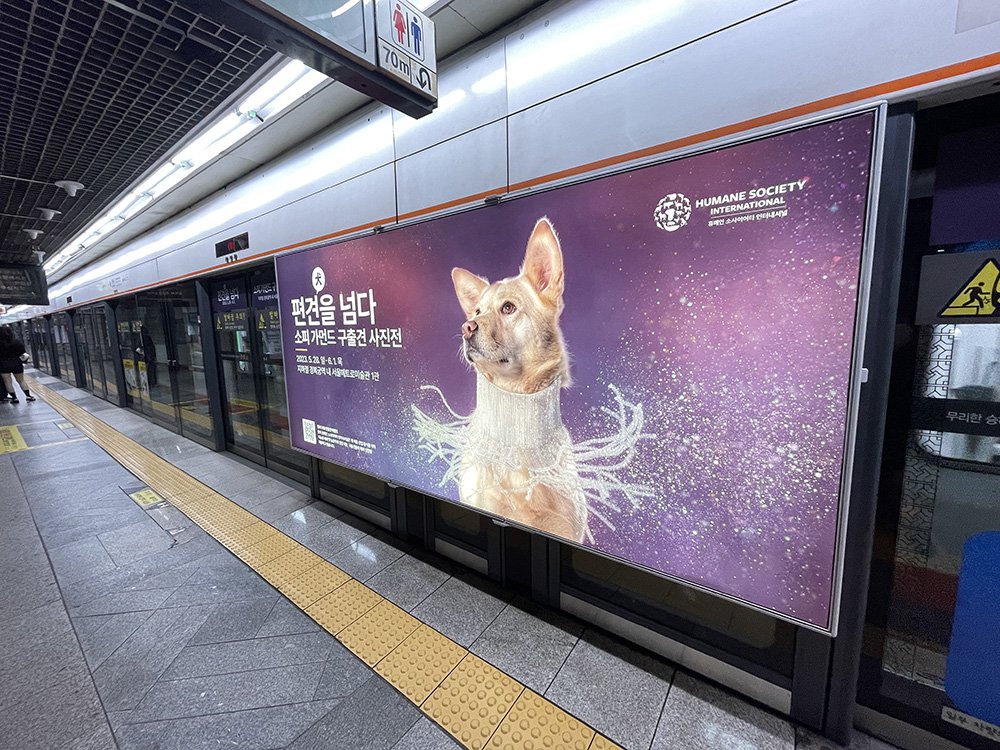
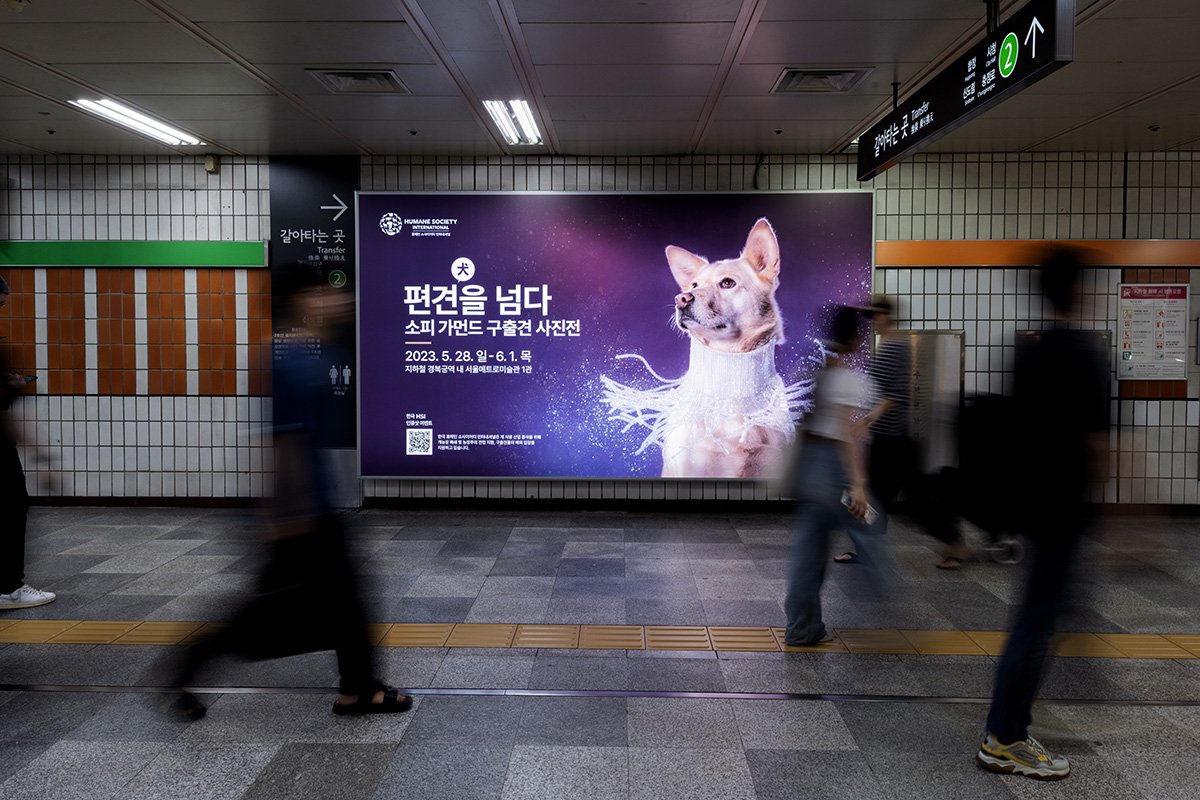
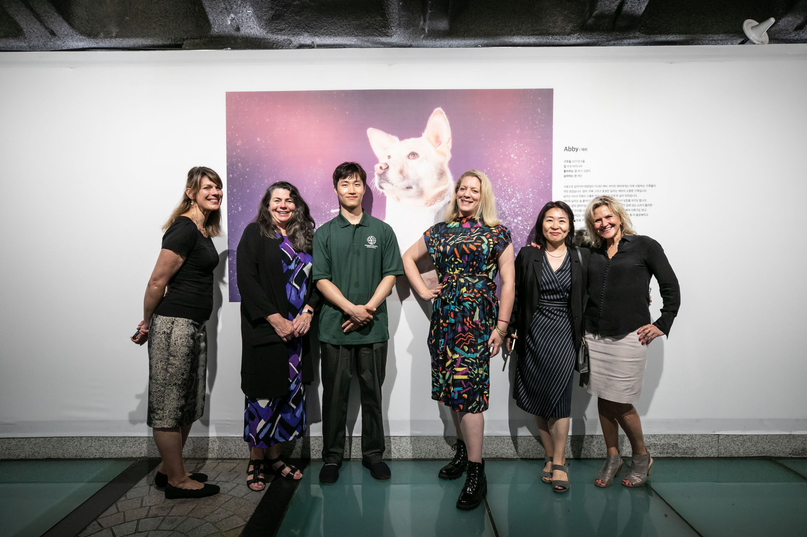
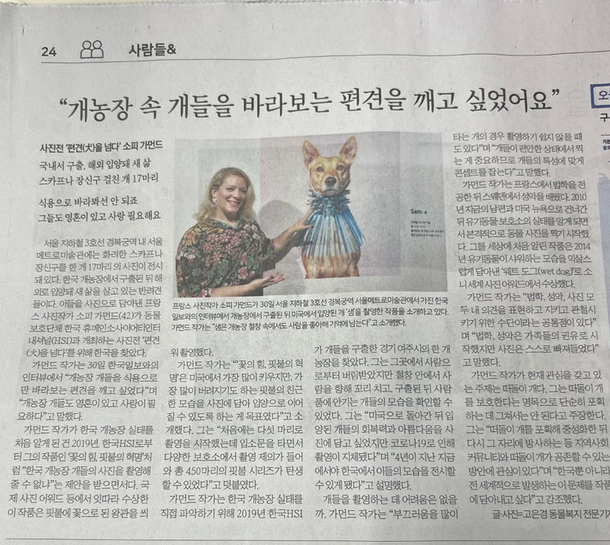

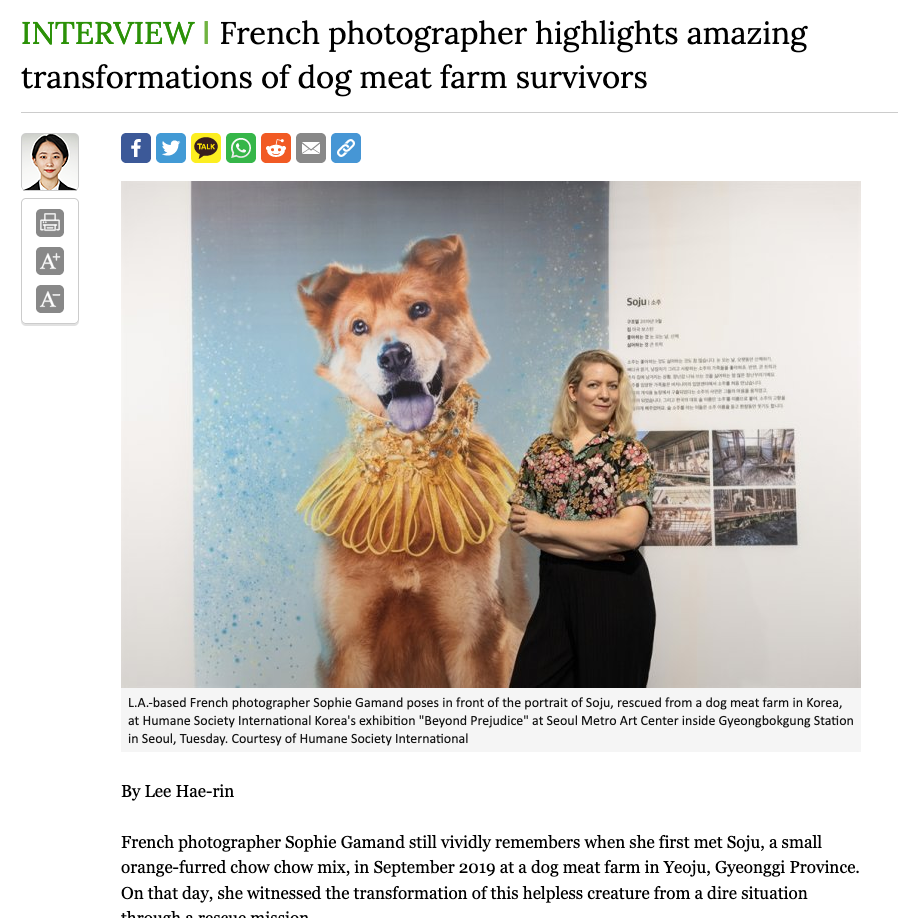
While the exhibit was still up, Seoul City Council member Kim Ji Hyang introduced an ordinance banning the consumption of dogs and cats in Seoul. The proposition rely on the Animal Protection Act and the Food Hygiene Act to point out the unsanitary conditions of the dog and cat meat trade. This law would be a major step in the fight against the cruel trade. The ordinance received much support from other members of the parliament.
On their Instagram account, HSI / Korea celebrated the introduction of this historical moment and highlighted its importance: “Killing dogs and cats for eating has long been a debated topic in our society. We believe that by passing this ordinance, we can end the old opposition and open a new society. It will be a barometer that tests our determination about what values our society truly seeks and how much courage we can use for that value, and it will be a barometer that measures the level of animal justice and awareness of animal rights in Korean society.”
HSI / Korea launched a petition for Korean people to voice their support of a ban.
During our exhibit, a large message board was built and it will be shown at the General Assembly as the ordinance is being discussed, to bring the voices of the public at the heart of the legislative conversation.
The end of the dog meat trade is in sight in South Korea. We hope these portraits can support the work of HSI / Korea and all animal activists engaged in this battle.
__________
(1) HSI Opinion poll (2020). “A new opinion poll in South Korea shows growing support for a ban on dog meat consumption, with 84% of those polled saying they don’t or won’t eat dog, and almost 60% supporting a legislative ban on the trade. The poll, conducted by Nielsen and commissioned by Humane Society International/Korea”. (Source).
(2). Dog meat trade in South Korea: A report on the current state of the trade and efforts to eliminate it. Claire Czajkowski 2014. J.D. 2014, Lewis & Clark Law School. (View document)
Advancing the welfare of animals in more than 50 countries, Humane Society International works around the globe to promote the human-animal bond, rescue and protect dogs and cats, improve farm animal welfare, protect wildlife, promote animal-free testing and research, respond to natural disasters and confront cruelty to animals in all its forms.
To learn more about HSI’s efforts to end the dog meat trade worldwide, visit this page.
Tor learn more about HSI’s program in South Korea, visit this page.








